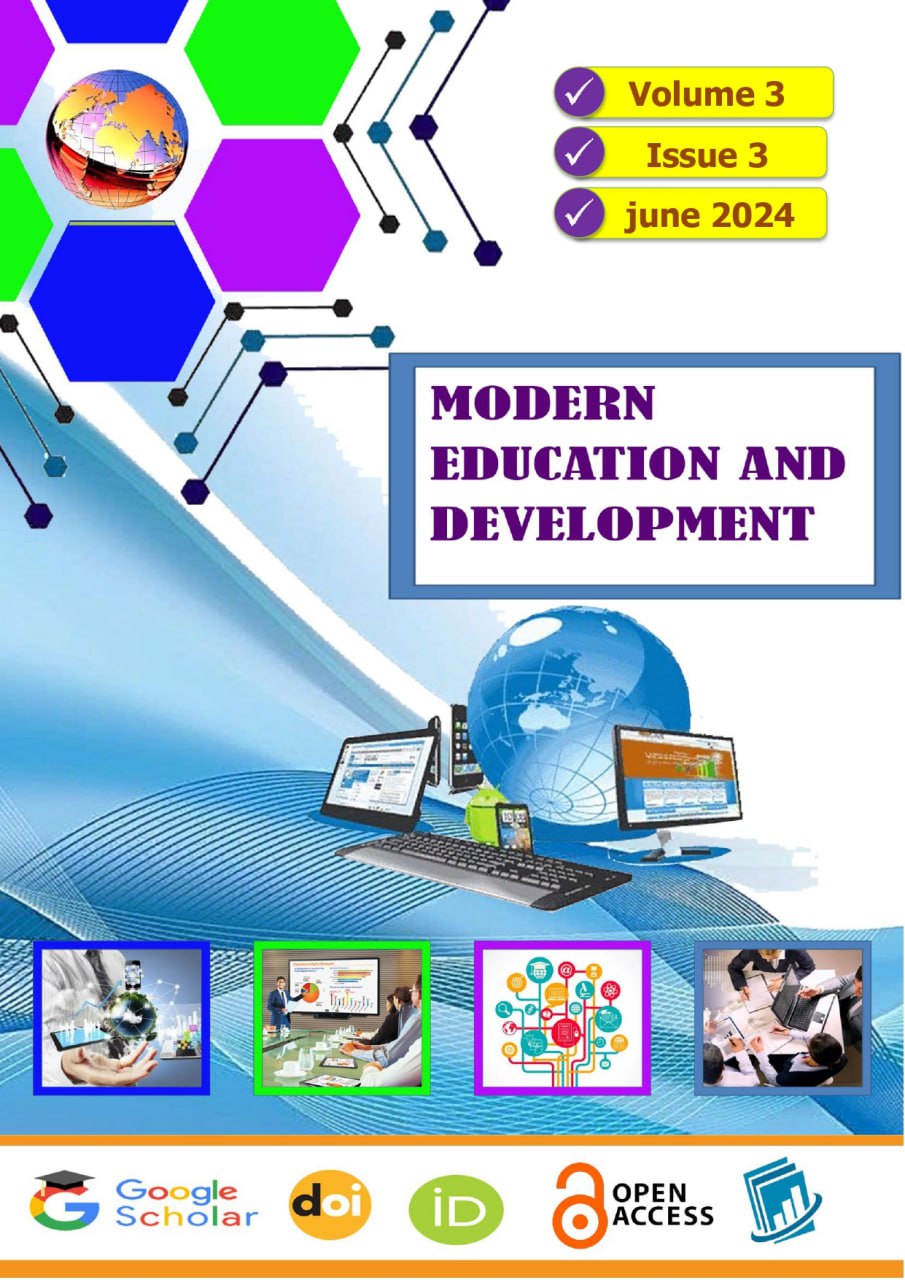STEAM TA'LIM TEXNOLOGIYASINING NAZARIY ASOSLARI
Keywords:
Steam ta'limi, konstruktivizm nazariyasi, ko'plab intellektlar nazariyasi, innovatsion pedagogika, o'quv loyihalari, kollaborativ ta'lim, raqamli texnologiyalar, Steam education, theory of constructivism, theory of multiple intelligences, innovative pedagogy, educational projects, collaborative education, digital technologiesAbstract
STEAM (Science, Technology, Engineering, Art, and Mathematics) ta'lim texnologiyasi hozirgi kunda ta'lim tizimida muhim o'rin egallab, o'quvchilarga zamonaviy dunyoda zarur bo'lgan ko'p qirrali ko'nikmalarni rivojlantirishga qaratilgan. Ushbu texnologiyaning nazariy asoslari integrativ yondashuv, amaliy va tajriba asosli ta'lim, ijodkorlik va innovatsiya, muammolarni hal qilish ko'nikmalarini rivojlantirish va hamkorlikni o'z ichiga oladi. STEAM ta'limi fan, texnologiya, muhandislik, san'at va matematikani bir-biriga bog'lab o'rgatishga asoslangan bo'lib, bu yondashuv o'quvchilarga o'zaro bog'liqlikni anglash va real dunyoda muammolarni kompleks ravishda hal qilishga yordam beradi. Shu bilan birga, ijodkorlik va innovatsiya bilan boyitilgan ta'lim jarayoni, o'quvchilarning tanqidiy fikrlash va hamkorlikda ishlash qobiliyatlarini rivojlantirishni ta'minlaydi.
STEAM (Science, Technology, Engineering, Art, and Mathematics) educational technology has taken an important place in the education system today and is aimed at developing multifaceted skills that students need in the modern world. The theoretical underpinnings of this technology include an integrative approach, hands-on and experiential learning, creativity and innovation, development of problem-solving skills, and collaboration. STEAM education is based on the integration of science, technology, engineering, art, and mathematics, an approach that helps students understand the interconnectedness and solve complex problems in the real world. will give. At the same time, the educational process, enriched with creativity and innovation, ensures the development of students' critical thinking and collaboration skills.

